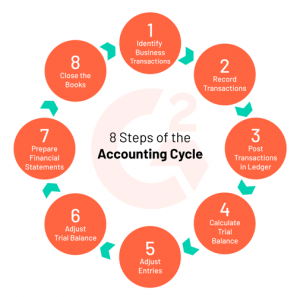
There are actually some benefits to have checks outstanding as well, though. Writing checks makes it possible for organizations and individuals to make payments without requiring instantaneous cash or electronic transactions to be completed. Checks that linger only buy the company more time to gather up enough resources for payment to clear if more time is needed. To adjust your records for outstanding deposits, subtract the outstanding deposit from your books. On July 25, 2023, BestBooks Store issues a check for $500 to one of its suppliers, PaperMills Co., for a new shipment of books.
- If a payee receives a check and does not present it for payment at once, there is a risk that the payer will close the bank account on which the check was drawn.
- Harold Averkamp (CPA, MBA) has worked as a university accounting instructor, accountant, and consultant for more than 25 years.
- A form letter is sent to the vendor or payee asking them if they received the check and asks them which action should be taken.
Of course, it’s best practice to deposit a check as soon as you receive it, which is why most checks include language encouraging a timely deposit. If a check is destroyed or never deposited, the money remains in the payer’s account. At first glance, this may seem like a positive turn of events for the payer. The amount of outstanding checks is sometimes referred to as float. Adjust your records by subtracting the outstanding deposit from your small business ledger.
What is an Outstanding Check?
This won’t prevent banks from processing two deposits, but the document can provide a useful paper trail if you want to dispute one of the deposits. If a check remains outstanding for an extended period, it may become stale-dated, and the bank may refuse to honor it. The payee should contact the issuer to request a new check if this occurs.
When you ask them how they want to be paid, try suggesting a money order, cashier’s check, or cash. You can ask if they’re willing to deduct the stop payment fee from the original amount. Professional accountants and bookkeepers deal with outstanding depreciable assets checks during reconciliation, a time where they are balancing their ledgers as they approach closing the books for the month. The information in this database is provided as a method to locate outstanding checks that have been mailed to recipients.
Checks that remain outstanding for long periods of time cannot be cashed as they become void. Some checks become stale if dated after 60 or 90 days, while others become void after six months. Balancing your checkbook is akin to what professional accountants do during reconciliation.
If you write a check and the money never leaves your account, you may develop the false belief you can spend those funds, but the money still belongs to the payee. If the payee finally deposits the check after months of delay, you risk overdrawing your account and bouncing the check. If the outstanding check has expired, you may want to write another check; however, it’s possible that this check will go stale, too, and that would prolong the situation.
Keep Records
The payor can void these fees using overdraft protection on their checking account. An outstanding check primarily serves as an instrument for an individual or corporation to make payments or transactions without needing to handle cash directly. For instance, a business might use an outstanding check to pay its suppliers or employees, as it offers the convenience of handling large payments securely and efficiently. This is a vital accounting task, where a company ensures its records match the bank’s records. Since an outstanding check represents an amount deducted from the company’s records but not yet from its bank balance, it needs to be accounted for in this process. For the checks to be cleared, the recipient must deposit the check at their bank, and the issuing bank must confirm the availability of sufficient funds to cover the check’s amount.
Boone County Sheriff’s Office confirms person killed after assault … – ABC17News.com
Boone County Sheriff’s Office confirms person killed after assault ….
Posted: Tue, 01 Aug 2023 13:17:15 GMT [source]
The main difference between outstanding checks and outstanding deposits is that a check takes money from your bank account while a deposit puts money into your bank account. That said, both outstanding checks and outstanding deposits refer to transactions that have not yet been posted to your account. The payment goes on the general ledger, but businesses must make adjustments during reconciliation, and they may need to reissue stale checks. The outstanding checks do not affect your cash flow statement directly since they have already been accounted for when issued. However, they still represent a future cash outflow when they will be cashed or deposited by the recipient. The University makes a concerted effort to resolve all outstanding checks which are outstanding for at least four months and are greater than or equal to $25.
What to Do About Outstanding Checks
A check is a financial instrument that authorizes a bank to transfer funds from the payor’s account to the payee’s account. When the payee deposits the check at a bank, it requests the funds from the payor’s bank, which, in turn, withdraws the amount from the payor’s account and transfers it to the payee’s bank. When the bank receives the full amount requested, it deposits it into the payee’s account. If the outstanding check is less than six months old, you should not write another check. The original check is still valid, and the payee can cash or deposit it.

This is because most banks will cash checks up to six months after they have been cashed. You can tell if a check is outstanding by reviewing your online bank account. From there, you can confirm whether or not the check has been processed. Alternatively, you can contact your bank directly with the check number and ask them to confirm. Lastly, you can contact the recipient of the check and ask them to confirm whether they have deposited or cashed the check. An outstanding check refers to a check that has not yet been deposited or cashed by the recipient.
What Happens If a Check Is Outstanding for Too Long?
He is the sole author of all the materials on AccountingCoach.com.
Forgotten outstanding checks are a common source of bank overdrafts. One way to avoid this occurrence is to maintain a balanced checkbook. This can help prevent any unnecessary NSFs if the payee decides to cash the check at a later date. Outstanding checks also provide the opportunity for payment delays, which can be advantageous when it comes to managing cash flow. Even if the checkwriter has sufficient funds, any delay from the depositor simply means higher interest revenue on the capital balance waiting to be drawn down.
Outstanding checks are deposited into a bank account once they are deposited by the recipient and processed by the receiving bank. Unfortunately, the issuing individual or business does not have any way to force a check to be deposited. Ask the payee to sign a document promising not to deposit both checks.

That said, it is possible for the issuing party to request a stop order from their bank, which would void the check that was issued. In most cases, they would then need to issue a replacement check. Additionally, banks typically charge fees when a stop order is issued, so before taking this action it’s important to confirm the related fees.
This period can range from 60 days to six months.Sometimes a payee forgets about the check or loses it without notifying the payor. The payor has no control over when the payee will cash or deposit the check. The only thing the payor can do, for a fee, is stop payment on the check. The payee cannot cash or deposit the check once a stop payment has been issued.The payer’s bank has no way of knowing that a check has been written until the payee deposits or cashes the check. Besides the liability it creates, the payor may forget that they wrote the check and spend money allocated for the check. When the payee cashes the check, and their bank tries to pull funds from the payor’s account, the payor will get hit with an overdraft or non-sufficient funds (NSF) fee.
- In this context, an outstanding check need not be outstanding for long; it may simply be the short period of time between when a check is mailed and when it is received.
- However, it is ultimately up to the receiving bank whether they will cash (or deposit) a check or not.
- By accounting for outstanding checks, the company can accurately reconcile its book balance with the bank statement balance.
- In that case, you must adjust your books to match the bank statement balance.
Outstanding checks are typically identified as part of the bank account reconciliation process. Checks that are outstanding for a long period of time are known as stale checks. In the U.S., outstanding checks are considered to be unclaimed property and the amounts must be turned over to the company’s respective state after several years. You can also use bank statement reconciliation to track your business’s progress. Using your outstanding deposits to balance the accounts, you can measure profitability and project cash flow.
If you wrote a check and it has been outstanding for a while, you may be wondering, “Do checks expire? ” They do expire and that’s why it’s important to record the date you wrote the check. If you want a basic checking account with no monthly maintenance fee, or an interest-earning checking account, we’ve got the options that are right for you. Usually, you will print this report as part of your bank reconciliation before you begin clearing checks.
